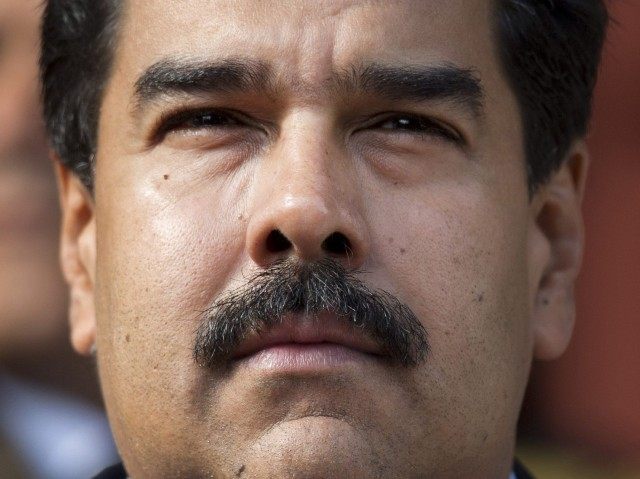The Venezuelan National Assembly has passed a declaration demanding dictator President Nicolás Maduro appear before the legislature to defend himself against accusations of having overridden Venezuela’s Constitution to remain in power, causing the collapse of the Venezuelan economy and using violence to suppress political dissidents.
Maduro, the legislature affirmed in the declaration, “has governed at the mercy of an exceptional state declared outside of the provisions of the constitution, without the approval of the National Assembly.”
In addition to accusing Maduro of “openly ignoring the Parliament’s competence to remove ministers through a censure vote” and violating “the rights and liberties of Venezuelans, as well as the independence, integrity, sovereignty of territory and defense of the Republic,” the legislature asserts that Maduro has “accelerated the political persecution” of opposition members.
The declaration summons Maduro to appear before the legislature on November 1. If he does not appear, the National Assembly will assert the right to remove him as president.
Maduro has used the nation’s Supreme Court to override the December 2015 vote that gave the National Assembly over to the anti-socialist opposition; the court proclaimed that the National Assembly is currently illegitimate. “Legally, the National Assembly does not exist,” vice-president Aristobulo Isturiz said Tuesday in response to the declaration.
“Congress is useless for our people’s interests. It has a single goal: to damage Venezuela,” Maduro himself said Tuesday in a rally in which he accused President Barack Obama of being “obsessed” with Venezuela.
The call for a congressional hearing follows the lawmakers’ declaration Monday that Maduro had staged a coup after the nation’s electoral commission rejected a petition to recall Maduro, a right provided to the Venezuelan people by constitution. The electoral commission claimed the signatures on the petition were invalid, without providing evidence; in response, the National Assembly declared that, by rejecting the petition, Maduro had staged a coup.
The coup declaration prohibits the armed forces from obeying Maduro.
Maduro took recourse during the weekend at the Vatican, where Pope Francis announced he would mediate a dialogue between Maduro and the opposition. The pope has not met with any members of the opposition.
“The opposition has nothing to negotiate,” Henrique Capriles Radonski, a regional governor, who ran for president against Maduro twice, said in response to the announcement. While he agreed to meet “with the Devil if [he has] to,” he dismissed calls for dialogue as a way to distract from the violations of the law. “The government wants a dialogue because they can feel the water at their necks and high-ranking officials are buying homes and looking to negotiate an exit,” Capriles argued.
“Until the constitutional order is restored, it is impossible for there to be a real dialogue,” he concluded.
While high-ranking Chavista officials have called for dialogue, their supporters on the ground have resorted to violence. On Monday, Democratic Unity Roundtable (MUD) opposition party leader Jesús Torrealba told reporters that “some 300” Chavista thugs had attempted to storm the National Assembly building and “lynch” opposition legislators. Video footage shows altercations outside the building in Caracas.
Venezuela has the world’s highest inflation rate and Caracas has been ranked the world’s most dangerous city during Maduro’s tenure.

COMMENTS
Please let us know if you're having issues with commenting.